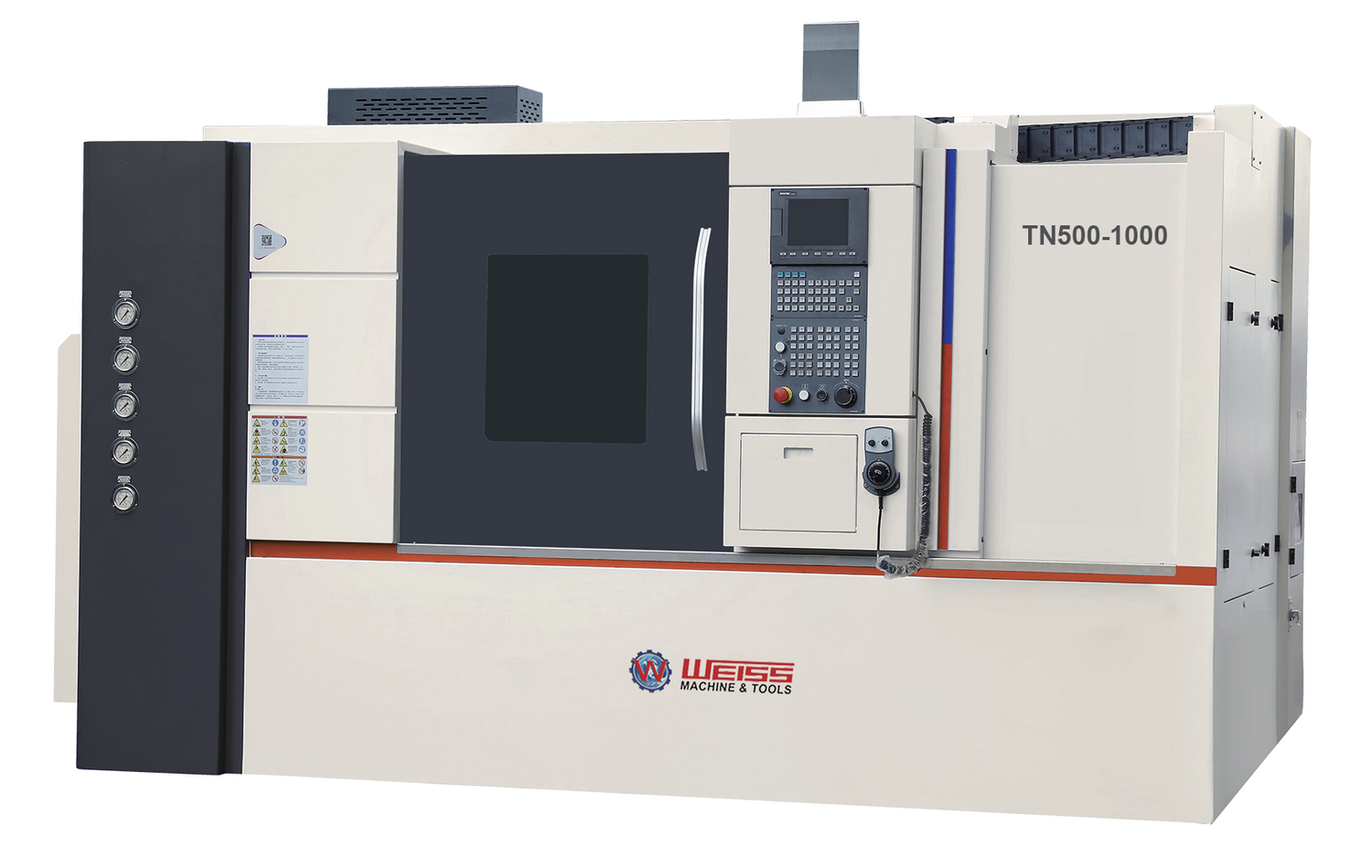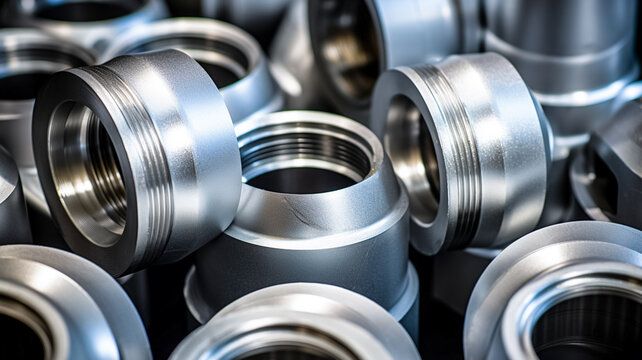
Get A Quote
What is a CNC Turning Center?
In the world of modern manufacturing, precision is paramount. The evolution of technology has brought about advancements that enable manufacturers to create complex and precise components with ease. One such technological marvel is the CNC turning center. But what exactly is a CNC turning center, and how does it contribute to the world of machining? In this article, we'll provide a basic introduction to CNC turning, exploring the functions of a CNC turning lathe machine and its significance in the manufacturing industry.
Understanding CNC Turning Centers
CNC turning centers are sophisticated machines designed for precision machining of cylindrical components. These machines use computer numerical control (CNC) technology to automate the turning process, ensuring high levels of accuracy, consistency, and efficiency. The CNC turning lathe machine, a key component of the turning center, plays a crucial role in shaping and cutting materials to create intricate parts.
What is CNC Turning?
CNC turning is a machining process that involves the rotation of a workpiece while a cutting tool removes material to achieve the desired shape. The term "turning" refers to the action of the workpiece spinning around its axis, while the cutting tool remains stationary or moves along specific paths to shape the material. CNC turning centers are used to produce components such as shafts, cylinders, and threaded parts with exceptional precision.
Key Components of a CNC Turning Lathe Machine
A CNC turning lathe machine consists of several essential components that work in harmony to achieve precise machining results. Some of the key components include:
- Spindle: The spindle is the heart of the CNC turning lathe machine. It holds and rotates the workpiece at high speeds, allowing the cutting tool to remove material efficiently.
- Chuck: The chuck is a clamping device that securely holds the workpiece in place on the spindle. It ensures that the workpiece remains stable during the turning process.
- Cutting Tool: The cutting tool is responsible for shaping the material as it rotates on the spindle. Various types of cutting tools can be used, depending on the material and the desired shape of the finished product.
- Tool Turret: The tool turret is a rotating mechanism that holds multiple cutting tools. It allows for quick tool changes, enabling the CNC turning lathe machine to perform various operations without manual intervention.
- Control Panel: The control panel is the interface where the operator inputs the desired machining parameters. It communicates with the CNC system, which controls the movement of the spindle and cutting tool.
Advantages of CNC Turning Centers
CNC turning centers offer numerous advantages over traditional machining methods. These advantages make them indispensable in modern manufacturing processes. Let's explore some of the key benefits of using a CNC turning lathe machine.
Precision and Accuracy
One of the most significant advantages of CNC turning centers is their ability to achieve high levels of precision and accuracy. The computer-controlled nature of these machines ensures that every cut is made with exact specifications, resulting in consistent and repeatable parts. This level of precision is crucial for industries such as aerospace, automotive, and medical, where even the slightest deviation can have serious consequences.
Efficiency and Speed
CNC turning centers are designed to maximize efficiency and speed in the machining process. The automation provided by CNC technology eliminates the need for manual intervention, allowing the machine to work continuously without breaks. This not only reduces production time but also increases overall productivity. Additionally, the ability to perform multiple operations in a single setup further enhances efficiency.
Versatility
CNC turning centers are incredibly versatile machines capable of handling a wide range of materials, including metals, plastics, and composites. They can perform various machining operations, such as turning, threading, boring, and drilling, making them suitable for producing complex components with intricate designs. The flexibility of CNC turning lathe machines allows manufacturers to meet the demands of diverse industries.
Reduced Human Error
Human error is a common challenge in manual machining processes, often leading to costly mistakes and rework. CNC turning centers significantly reduce the risk of human error by automating the machining process. Once the programming is set, the machine follows the instructions precisely, minimizing the chances of errors and ensuring consistent quality.
Cost-Effectiveness
While the initial investment in a CNC turning center may be higher than traditional machining equipment, the long-term cost savings are substantial. The efficiency, precision, and reduced need for manual labor translate into lower production costs and higher profit margins. Additionally, the ability to produce high-quality components with minimal waste further contributes to cost-effectiveness.
Applications of CNC Turning Centers
CNC turning centers are widely used across various industries, thanks to their versatility and precision. Let's take a closer look at some of the common applications of CNC turning lathe machines.
Aerospace Industry
In the aerospace industry, precision is of utmost importance. CNC turning centers are used to manufacture critical components such as turbine blades, engine parts, and landing gear components. The ability to produce complex shapes with tight tolerances makes CNC turning an ideal choice for aerospace applications.
Automotive Industry
The automotive industry relies heavily on CNC turning centers to produce a wide range of components, including engine parts, transmission components, and steering systems. The speed and efficiency of CNC turning allow automotive manufacturers to meet the demands of high-volume production while maintaining consistent quality.
Medical Industry
In the medical field, CNC turning centers play a vital role in the production of medical devices and implants. Precision and accuracy are crucial when manufacturing components such as surgical instruments, orthopedic implants, and dental devices. CNC turning ensures that these components meet the stringent quality standards required in the medical industry.
Oil and Gas Industry
The oil and gas industry requires robust and durable components that can withstand harsh environments. CNC turning centers are used to produce various components such as valves, pumps, and fittings. The ability to work with tough materials like stainless steel and titanium makes CNC turning essential for the oil and gas sector.
Conclusion
In conclusion, CNC turning centers have revolutionized the manufacturing industry by providing unparalleled precision, efficiency, and versatility. These machines are integral to producing high-quality components for a variety of industries, from aerospace to automotive and beyond. As technology continues to evolve, CNC turning centers will only become more advanced, further optimizing the machining process and enabling manufacturers to stay ahead in a competitive market.
For those looking to enhance their production capabilities with state-of-the-art CNC turning lathe machines, WEISS Machine offers an exceptional range of solutions. With a commitment to quality and innovation, WEISS Machine provides cutting-edge CNC turning centers designed to meet the rigorous demands of modern manufacturing. Whether you're seeking precision, speed, or versatility, WEISS Machine has the expertise and equipment to help you achieve your goals. Choose WEISS Machine and elevate your manufacturing processes to the next level.


